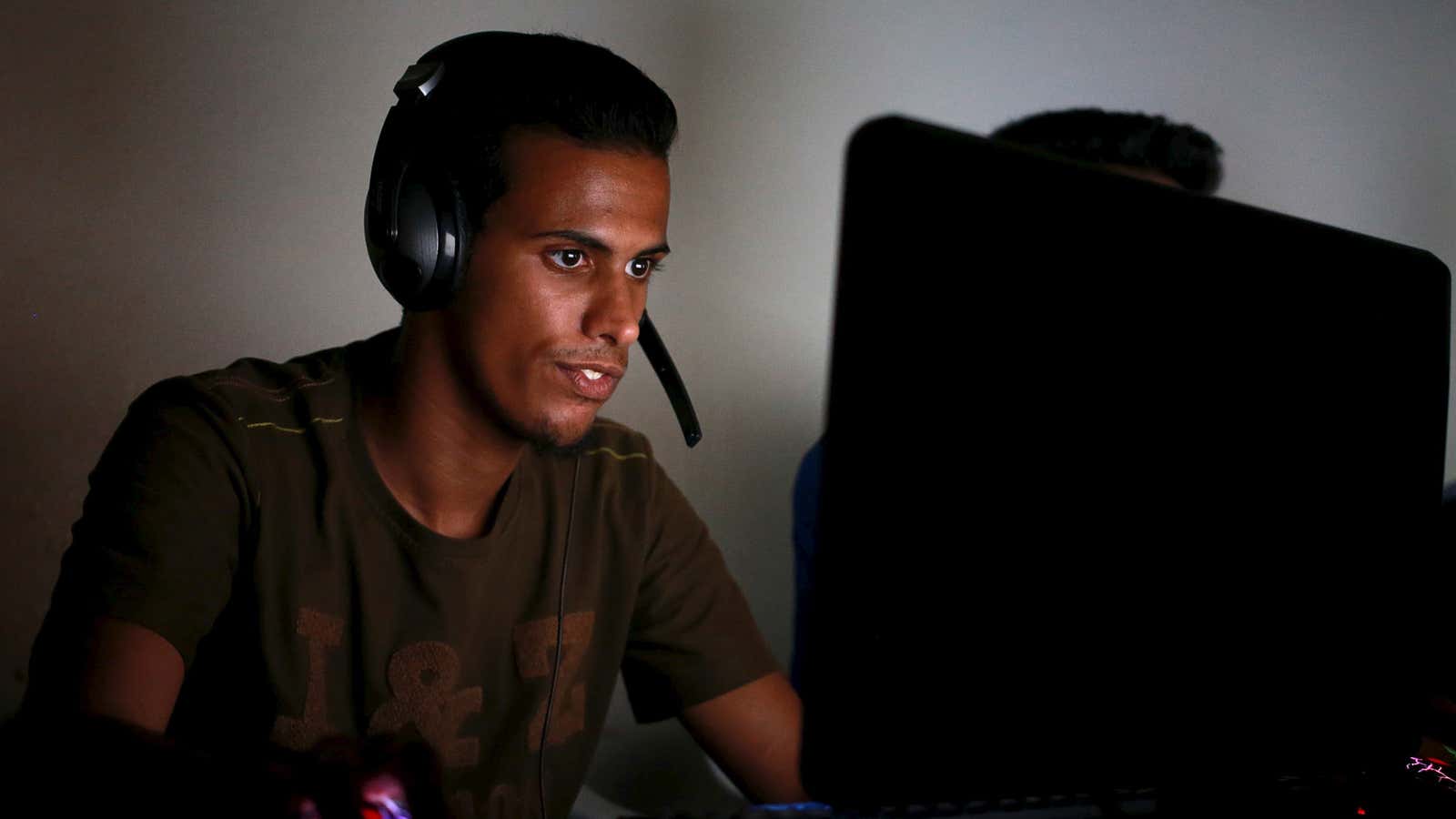The high cost of data prohibits many people in the world’s poorest countries from gaining full access to the internet. More than 4 billion people remain offline, and low- and middle-income countries are on track to meet the 2020 goal of universal internet access 20 years behind schedule (pdf).
In Africa, one gigabyte of prepaid mobile data costs the average resident nearly 18% of their monthly income, according to a new report from the Alliance for Affordable Internet. The global coalition to reduce internet prices surveyed 27 African countries and found that only five of them met the “1 for 2” affordability target: that is, one gigabyte of data for no more than 2% of income.
Despite numerous factors impeding connectivity in Africa, the report notes that government inaction is mainly to blame for the failure to expand internet access across the continent. Many African governments have yet to invest in the infrastructure necessary to narrow the digital divide or come up with policies that encourage equitable access. National broadband plans either sit unendorsed, like in Mali, or are outdated, like in The Gambia. Out of the 58 countries surveyed in the report, Mauritius is the only African country that features in the top 10 of the index tracking “affordability drivers.”
There has been some progress, however. Countries like Benin and Botswana have introduced noteworthy policy reforms and public access initiatives. For instance, Benin, which moved up nine spots (from 38th in 2016 to 29th in 2017), has in the past urged mobile operators like MTN and Glo to improve their services. In Botswana, free wifi spots were introduced in public spaces like hospitals, airports, bus stations, and government offices, connecting those who cannot afford to pay for regular internet use. Cities like Cape Town and Tshwane in South Africa have also introduced hundreds of wifi spots to get more people online.
At the same time, more and more governments in Africa are quick to shut down the internet when it suits them. Telecom operators are in a bind, as they keep getting pressured to cut off access or give officials access to users’ private information. This doesn’t exactly encourage more people to get online.
